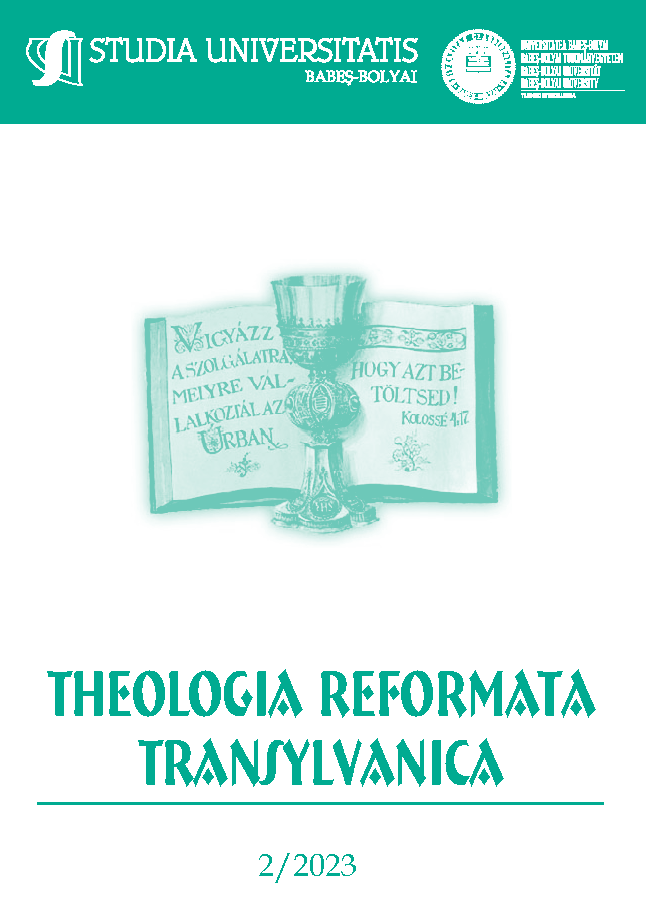Egyéni panaszzsoltárok jelentősége az istentiszteleti gyakorlatban
DOI:
https://doi.org/10.24193/subbtref.2023.2.05Keywords:
individual lament, faith, transition, joy, praise.Abstract
The Importance of Individual Lament Psalms in Worship Practice
The theological significance of individual lament songs lies primarily in their giving voice to suffering. Despite the complaint, the sufferer does not turn away from God since the centre of human existence is God. Suffering does not rule out the connection with God but rather confirms it. The lament has by now lost its original meaning and has received a negative report, as in the eyes of today’s humanity complaint is an expression of unbelief and a distrustful attitude. This aspect, the importance of lament songs, has been ignored by scholars until now. However, the predominance of lament songs in the Book of Psalms means that the issue of complaint is not something marginal or unusual but an important element of faith. One of the most important characteristics of this genre is the sudden change of mood, when the complaint unexpectedly turns into praise. This poetic form involves the transition from hopelessness to joy, for the form not only contains a description of the problem but also the solution to it as well. In a world that has become desensitized, it is important to use these psalms.
References
BROWN, William, P. (2014): The Psalms: An Overview, In: Brown, William P. (szerk.): The Oxford Handbook of the Psalms. Oxford, Oxford University Press.
BRUEGGEMANN, Walter (2002): Spirituality of the Psalms. Minneapolis, Fortress Press. (1995): The Psalms and the Life of Faith. Minneapolis, Fortress Press. (1986): The Costly Loss of Lament, In: JSOT. 36. 57–71. (1984): The Message of the Psalms. Minneapolis, Augsburg Publishing House.
CARLSON, Nathaniel A. (2015): Lament: The Biblical Language of Trauma, In: JTC. 11. 1. 50–68.
GERSTENBERGER, Erhard S.: (2005): The Psalter, In: Perdue, Leo G. (szerk.): The Blackwell Companion to the Hebrew Bible. Oxford, Blackwell Publishing. (1980): Der bittende Mensch, Bittritual und Klaglied des Einzelnen im Alten Testament. Neukirchen Vluyn, Neukirchener Verlag.
GUNKEL, Hermann (1926): Die Psalmen. Göttingen, Vandenhoeck & Ruprecht.
GUNKEL, Hermann – BEGRICH, Joachim (1933): Einleitung in die Psalmen. Göttingen: Vandenhoeck & Ruprecht.
KARASSZON, Dezső (1982): Az istendicséret helye a Zsoltárok könyvében, In: ThSz. 25. 351–353.
KARASSZON, István (2006): Ószövetségi ismeretek. Vallástanár szakos hallgatók számára. Komárom, Selye János Egyetem.
KRAUS, Hans-Joachim (1979): Theologie der Psalmen. Neukirchen – Vluyn, Neukirchener Verlag.
MANDOLFO, Carleen (2014): Language of Lament in the Psalms, In: Brown, William P.: The Oxford Handbook of the Psalms. Oxford, Oxford University Press.
SEYBOLD, Klaus (2000): A zsoltárok emberképe. Ford. Karasszon Dezső, In: ThSz. 43. 328–333. (1996): Die Psalmen. Tübingen, J.C.B. Mohr (Paul Siebeck). (1990): Introducing the Psalms. Einburgh, T. & T. Clark Ltd.
VILLANUEVA, Federico, G. (2008): The Uncertainty of a Hearing, A Study of the Sudden Change of Mood in the Psalms of Lament. Leiden – Boston, VTSup 121, Brill.
WESTERMANN, Claus (1984): Ausgewählte Psalmen. Göttingen, Vandenhoeck & Ruprecht. (1977): Lob und Klage in den Psalmen. Göttingen, Vandenhoeck & Ruprecht.
Downloads
Published
How to Cite
Issue
Section
License
Copyright (c) 2023 Studia Universitatis Babeș-Bolyai Theologia Reformata Transylvanica

This work is licensed under a Creative Commons Attribution-NonCommercial-NoDerivatives 4.0 International License.






